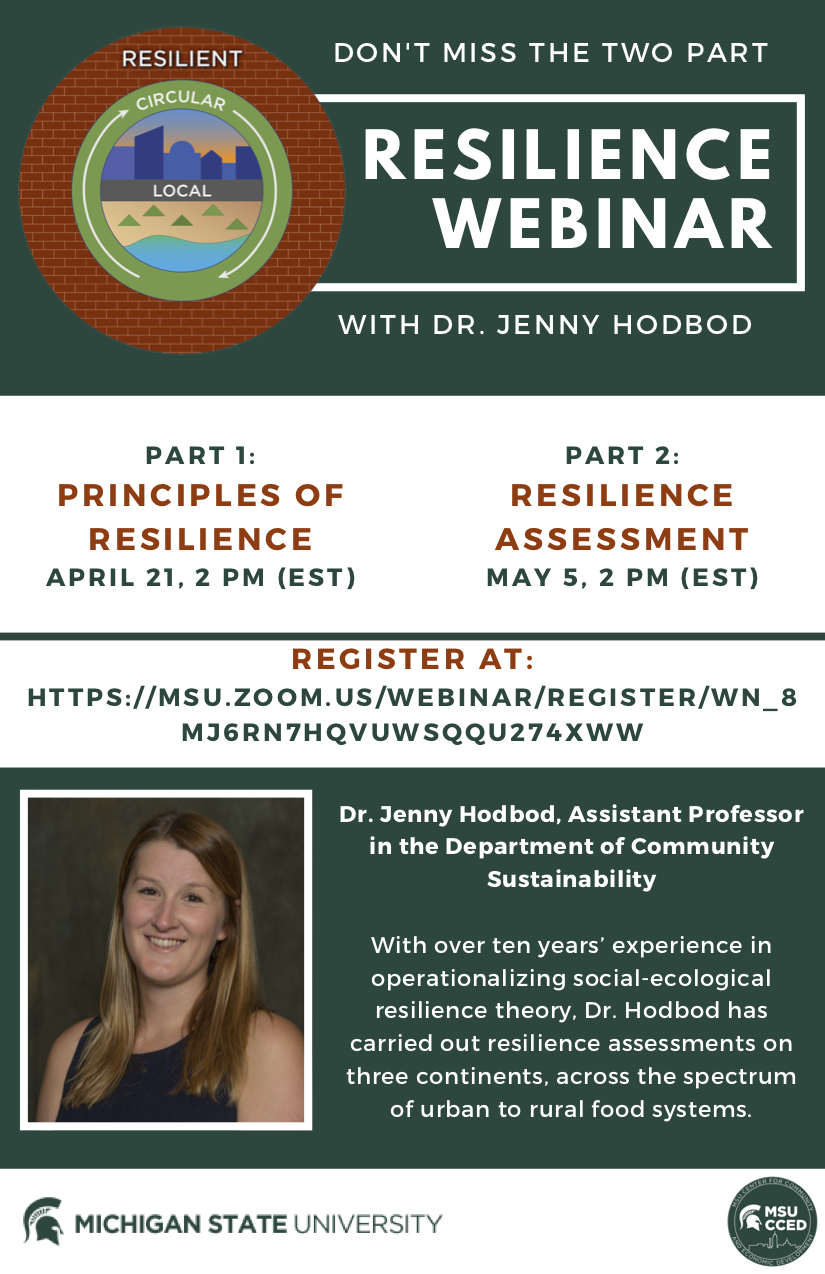Discovering and applying new and innovative economic development tools, models, policies, and programs
Creating Jobs and Wealth in Distressed Michigan Communities
Dr. Hodbod Resilience Webinars
Dr. Jenny Hodbod, Assistant Professor in the department of Community Sustainability at MSU is hosting a two part webinar series part of the Comprehensive Economic Recovery Initiative (CERI) Resiliency planning.
First Webinar: Principles of Resilience
In her first webinar, Dr. Hodbod will introduce the theory of social-ecological resilience to set a common framework for thinking about resilience. This webinar will differentiate that social-ecological resilience is not equivalent to resiliency--a term referring to the ability of a system to “bounce back”. Instead, social-ecological resilience refers to a system’s capacity to respond to change and constantly develop. Specifically, Dr. Hodbod will demonstrate that resilience is determined by systems’ abilities, or inabilities, to cope, adapt, and transform. She will also review the seven principles of resilience, which determine a system’s adaptive and transformative capacity--diversity, connectivity, learning, participation, polycentric governance, fostering complex adaptive systems thinking, and identifying slow variables. Finally, the webinar will introduce a “resilience of what, to what, for whom” frame that will aid in assessing resilience of systems. This framing aids in drawing system boundaries, identifying the shocks systems need to build resilience to, and understanding how previous shocks have impacted various groups within the systems.
Second Webinar: Resilience Assessment
In her second webinar, Dr. Hodbod will introduce a toolbox approach to resilience assessment. The webinar will recap and build on Dr. Hodbod’s previous discussion on framing resilience of what, to what, and for whom. Bounding systems gives grace to participatory resource and stakeholder mapping to understand ‘resilience of what’ through identifying spatial, temporal, and governance boundaries. Systems’ resilience ‘to what’ can be identified through timelining to identify past patterns of shocks. Building on the stakeholder map and timeline, equity analyses explore ‘resilience to what for whom’ by outlining how past shocks have differentially impacted various groups within the system. Resilience principles are used at this point to analyze why impacts differed and identify indicators of resilience. Finally, the webinar will discuss how to embed visioning into resilience assessment to determine what a desirable and resilient future looks like for different groups within a system, again building from the earlier phases to identify who has power and a voice within this process. Identifying desirable futures guides planning for building resilient and equitable systems.
To learn more about our Comprehensive Economic Recovery Initiative (CERI)


